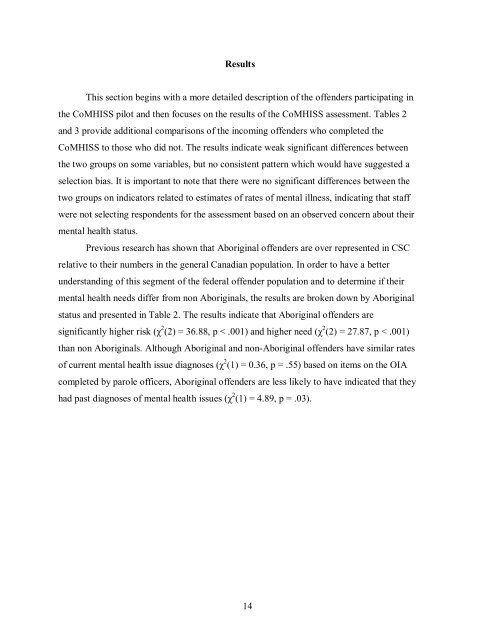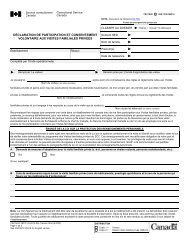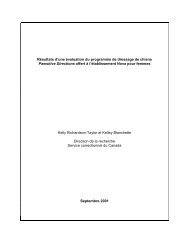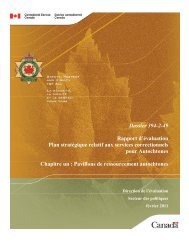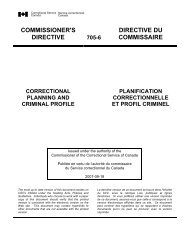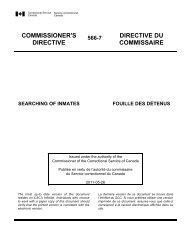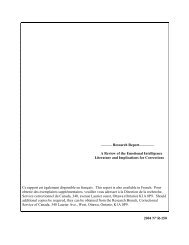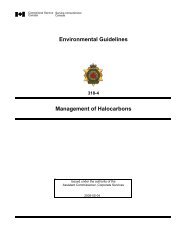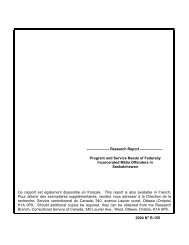The Brief Symptom Inventory (BSI) - Service correctionnel du Canada
The Brief Symptom Inventory (BSI) - Service correctionnel du Canada
The Brief Symptom Inventory (BSI) - Service correctionnel du Canada
You also want an ePaper? Increase the reach of your titles
YUMPU automatically turns print PDFs into web optimized ePapers that Google loves.
Results<br />
This section begins with a more detailed description of the offenders participating in<br />
the CoMHISS pilot and then focuses on the results of the CoMHISS assessment. Tables 2<br />
and 3 provide additional comparisons of the incoming offenders who completed the<br />
CoMHISS to those who did not. <strong>The</strong> results indicate weak significant differences between<br />
the two groups on some variables, but no consistent pattern which would have suggested a<br />
selection bias. It is important to note that there were no significant differences between the<br />
two groups on indicators related to estimates of rates of mental illness, indicating that staff<br />
were not selecting respondents for the assessment based on an observed concern about their<br />
mental health status.<br />
Previous research has shown that Aboriginal offenders are over represented in CSC<br />
relative to their numbers in the general Canadian population. In order to have a better<br />
understanding of this segment of the federal offender population and to determine if their<br />
mental health needs differ from non Aboriginals, the results are broken down by Aboriginal<br />
status and presented in Table 2. <strong>The</strong> results indicate that Aboriginal offenders are<br />
significantly higher risk (χ 2 (2) = 36.88, p < .001) and higher need (χ 2 (2) = 27.87, p < .001)<br />
than non Aboriginals. Although Aboriginal and non-Aboriginal offenders have similar rates<br />
of current mental health issue diagnoses (χ 2 (1) = 0.36, p = .55) based on items on the OIA<br />
completed by parole officers, Aboriginal offenders are less likely to have indicated that they<br />
had past diagnoses of mental health issues (χ 2 (1) = 4.89, p = .03).<br />
14


